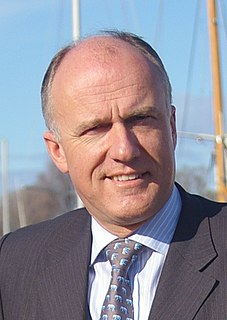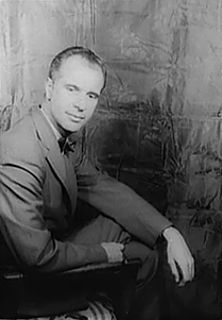A Quote by Alfred Binet
Our purpose is to be able to measure the intellectual capacity of a child who is brought to us in order to know whether he is normal or retarded. ... We do not attempt to establish or prepare a prognosis and we leave unanswered the question of whether this retardation is curable, or even improveable. We shall limit ourselves to ascertaining the truth in regard to his present mental state.
Related Quotes
I think it's time we ask ourselves if we still know the freedoms that were intended for us by the Founding Fathers... Whether we believe in our capacity for self-government or whether we abandon the American Revolution and confess that a little intellectual elite in a far-distant capital can plan our lives for us better than we can plan them for ourselves.
The question before the human race is, Whether the God of nature shall govern the world by his own laws, or whether Priests and Kings shall rule it by fictitious Miracles? Or, in other words, whether authority is originally in the People? Or whether it has descended for 1800 Years in a succession of Popes and Bishops, or brought down from Heaven by the Holy Ghost in the form of a Dove, in a Phial of holy Oil?
To bring the matter to one point, Is the power who is jealous of our prosperity, a proper power to govern us? Whoever says, No, to this question, is an independent, for independency means no more than this, whether we shall make our own law, or, whether the king, the greatest enemy which this continent hath, or can have, shall tell us there shall be no laws but such as I like.
Things like Kitchen Cabinet, I'm not sure they necessarily tell the Australian people whether you have judgement, whether you have discernment, whether you have intellectual acuity, whether you are able to develop policy, whether you are able to represent individual cases to the highest levels of government successfully and in a manner that actually achieves outcomes.
Man can only be certain about the present moment. But is that quite true either? Can he really know the present? Is he in a position to make any judgment about it? Certainly not. For how can a person with no knowledge of the future understand the meaning of the present? If we do not know what future the present is leading us toward, how can we say whether this present is good or bad, whether it deserves our concurrence, or our suspicion, or our hatred?
During the first half of the present century we had an Alexander von Humboldt, who was able to scan the scientific knowledge of his time in its details, and to bring it within one vast generalization. At the present juncture, it is obviously very doubtful whether this task could be accomplished in a similar way, even by a mind with gifts so peculiarly suited for the purpose as Humboldt's was, and if all his time and work were devoted to the purpose.
The first requisite of a good citizen in this Republic of ours is that he shall be able and willing to pull his weight; that he shall not be a mere passenger, but shall do his share in the work that each generation of us finds ready to hand; and, furthermore, that in doing his work he shall show, not only the capacity for sturdy self-help, but also self-respecting regard for the rights of others.
Our experience of love is more of a measure of whether we're connected with the universal source of this energy. In other words, there's some life energy that we have and sort of share with people we might be relating to that takes place, that operates whether we're sort of feeling in a state of love or not. But love is the measure of whether we're really connected with the internal source of this energy where we can consciously sort of fill up and amplify the amount of energy that we're able to take in from the inside.





































